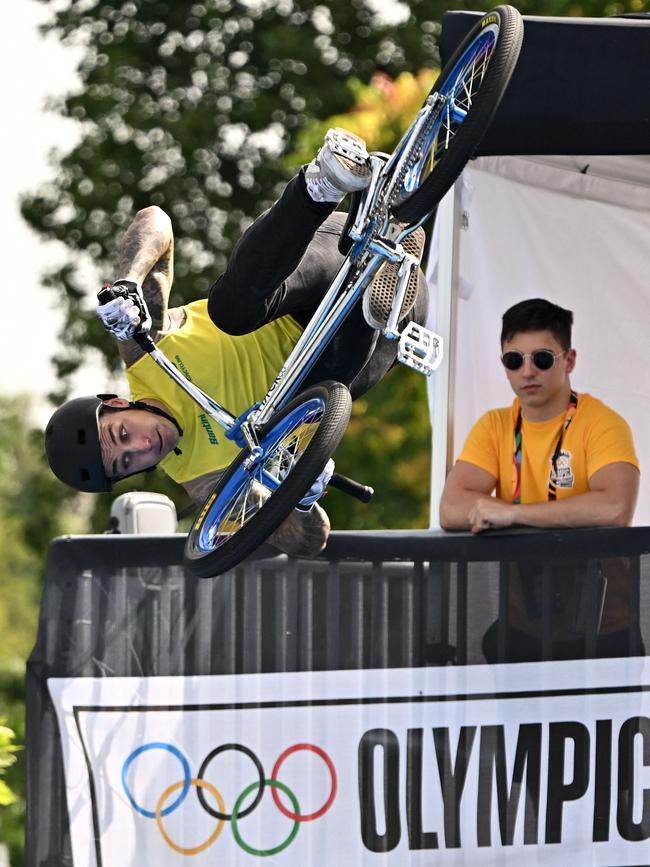AusCycling CEO Marne Fechner takes us inside the ‘largest governance reform in sport’
There is growing momentum behind a push to blow up the current model of Australian sports administration. AusCycling CEO Marne Fechner, whose organisation has taken the leap, details the lessons so far.

Cycling
Don't miss out on the headlines from Cycling. Followed categories will be added to My News.
The ranks of Australian sports administration can roughly be divided into two camps.
Believers in the traditional federated system of state associations ‘owning’ its national body, and those that think that system should be blown up.
Australian Sports Commission CEO Kieren Perkins may be the most high profile of the latter, confirmed by his declaration earlier this year that “the federated model of sport is guaranteeing our future destruction.”
Those that believe in revolution, and many who don’t, will be clamouring to listen to AusCycling CEO Marne Fechner at this week’s National Sports and Physical Activity Convention at Melbourne Park.
AusCycling is the most recent example of a sport completely reorganised into a top down structure to Perkins’ liking, making Fechner’s insights combined with her previous experience within the federated model as CEO of Netball Australia a hot ticket for attendees.
“I refer to it as the largest governance reform in sport,” Fechner tells CODE Sports.
“In terms of size and scale and complexity, it probably had the hardest ingredients to actually pull together.”
Before cycling’s revolution it was split into 19 different bodies, from BMX to mountain biking to road to track. Federated and unfederated.

Four years of blood, sweat and bureaucratic toil officially got the sport into one tent with the formation of AusCycling in November 2020. Fechner took on the CEO role at that point and understands that their new philosophy is detached from the reality for a lot of sports.
“Who wants to vote themselves out of a position in power?” she asks.
“That’s worth a lot in sport.”
While the benefits of streamlined sport can be demonstrated on balance sheets and organisational charts, Fechner believes cycling’s move was as much the result of the energy and attitude of the individuals involved.
“It’s not only about the process that you go through, it’s about the team of people that you have.
“The resilience to keep moving through, the amount of hours of emotional energy, the conversations and explanations to win the hearts and minds of everyone that was involved in placing a vote on whether this should happen.”
“For any sport thinking about it, that team of people is really critical.”
At the convention this week, audiences will above all want to know from Fechner whether it’s all been worth it.
How does Fechner love the new structure? Let her count the ways.
“The efficiency in decision-making. Nineteen organisations previously all trying to do financials and human resources. One really clear strategy for the sport. Our ability to take things from ideation into the market to test and learn without having to deal with the 19 entities to try and convince everyone that this was a good idea,” she says.
Sorting out one cohesive participation program in the sport swiftly is perhaps the best example.


“There were over a hundred programs, which is unbelievable,” Fechner says.
“Now we have one significant Learn to Ride program that took us less than 12 months to develop and roll out nationally.
“If I look at it in my previous role in Netball, it took us years just to get everyone to agree on the name of the junior development program. So there’s really significant benefits there.”
While the positives are numerous, she’s also careful to stress that dismantling the federated model is not a panacea for every ill in a sport.
“That governance reform got us to the start line, but it didn’t solve all the problems that existed in the sport. They’re still here.
“It’s brilliant, but it’s still hard.”
And while the consolidation makes sense inside the organisation, externally there’s still a lot of catch-up to be done.
“We think differently, we act differently, but the system that we operate in hasn’t changed,” Fechner says.
“Sometimes we’re a square peg in a round hole. As one of the first, it makes it hard for government partners. Are we State or are we National? We’re both.”
Regardless of the teething issues, Fechner is part of the believers camp, albeit with nuance.
“I do think (the system) needs to evolve,” she says.
“The Australian Sports Commission is looking at AusCycling as a real case study in that regard.
“But it’s not for the faint hearted. It’s really hard work and it needs a lot of commitment, vision and resilience.”
The National Sports and Physical Activity Convention is held this week, 27-28 June at the Melbourne Convention and Exhibition Centre.
More Coverage
Originally published as AusCycling CEO Marne Fechner takes us inside the ‘largest governance reform in sport’





